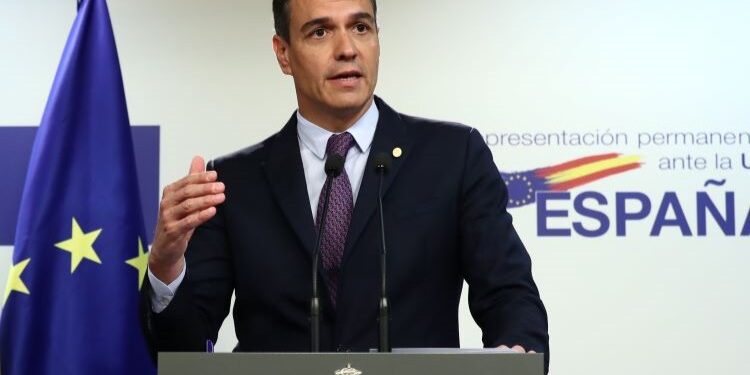The Diplomat
The acting President of the Government, Pedro Sánchez, will close today at the headquarters of the Instituto Cervantes in Madrid a commemorative event for the European Day of Languages, just a week after the EU Member States paralyzed their attempt to make the use official. of Catalan, Basque and Galician in the European Union.
The European Day of Languages, created in 2001 by the European Union to promote language learning in Europe and recognize the richness of multilingualism, is celebrated tomorrow, September 26, but will be preceded in Spain by a special edition in which Pedro Sánchez and the director of the Instituto Cervantes, Luis García Montero, and in which a recital of poems will be staged in the official languages of the countries that make up the trio of the Presidency of the Council of the European Union (Spain, Belgium and Hungary) and in the three co-official Spanish languages, as reported by Cervantes in a press release.
During the event, a special multilingual edition of the poem Grito hacia Roma (Cry to Rome), by Federico García Lorca (included in the work Poeta en New York), will be presented, which has been prepared by the Instituto Cervantes in collaboration with the Federico García Lorca Foundation and the Office of Coordination of the Spanish Presidency of the Council of the European Union and which includes the poem translated into the 24 official languages of the European Union and the three co-official Spanish languages – Basque, Catalan and Galician -, as well as illustrations by Lorca himself.
The event will feature representatives of the Embassies of the countries that make up the trio of the Presidency, who will recite García Lorca’s composition in their respective languages: Kinga G. Nagy, deputy consul general of Hungary (in Hungarian), and, on the from the Belgian Embassy, Clémence Bouchat, in charge of Culture for Wallonia-Brussels International (in French); Catherine Van der Linden, in charge of Communication and Public Diplomacy (in Dutch); and José de Pierpont, minister counselor (in German). For their part, the writers Bernardo Atxaga, Estel Solé and Manuel Rivas will recite the verses in Basque, Catalan and Galician, respectively; and the actor and director Juan Diego Botto, will do the same in Spanish.
Additionally, the president of the Galician Culture Council, Rosario Álvarez Blanco, will deposit in the Caja de las Letras of the Instituto Cervantes the in memoriam legacy of the writer Rosalía de Castro (Santiago de Compostela, 1837 – Padrón, 1885), whose work began on period known as Galician Rexurdimento.
Pedro Sánchez’s presence will take place six days after the European partners decided that there is no urgency in making the use of Catalan, Basque and Galician official in the European Union, as the Spanish Government intended, and opted to postpone any decision. in this regard pending a legal opinion from the Council of the EU on the consequences of the measure and an analysis of the economic, political and practical impact it would have.
Last Tuesday, the Government sent the acting Minister of Foreign Affairs, José Manuel Albares, to the meeting of the General Affairs Council, which is usually attended by ministers or secretaries of State who directly deal with European issues, because it wanted to ensure support of the Twenty-seven to an initiative agreed upon with the Catalan and Basque independentists to achieve support for his investiture as head of the Government.
In an attempt to gain followers for his initiative, the Minister of Foreign Affairs offered to start with Catalan first and leave Basque and Galician for later. The minister’s decision to prioritize Catalan, which he himself justified with the argument that he had chosen the language “whose representatives have most insistently requested” the inclusion of their language in the community framework and because, of the three co-official languages, is, with more than 10 million speakers, the one with the greatest presence, caused great discomfort among Basque and Galician nationalists, whose vote Sánchez also needs to obtain the investiture.







